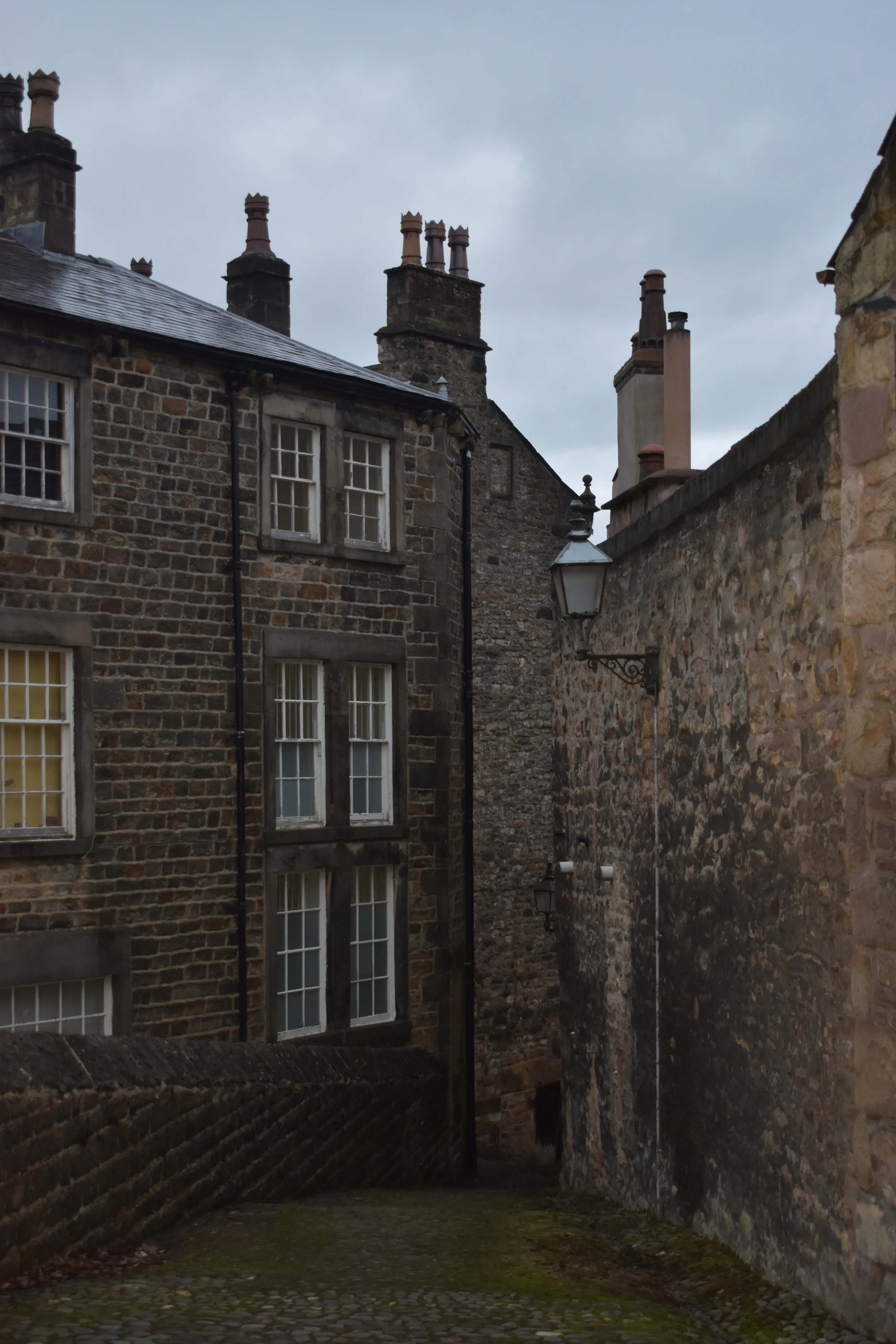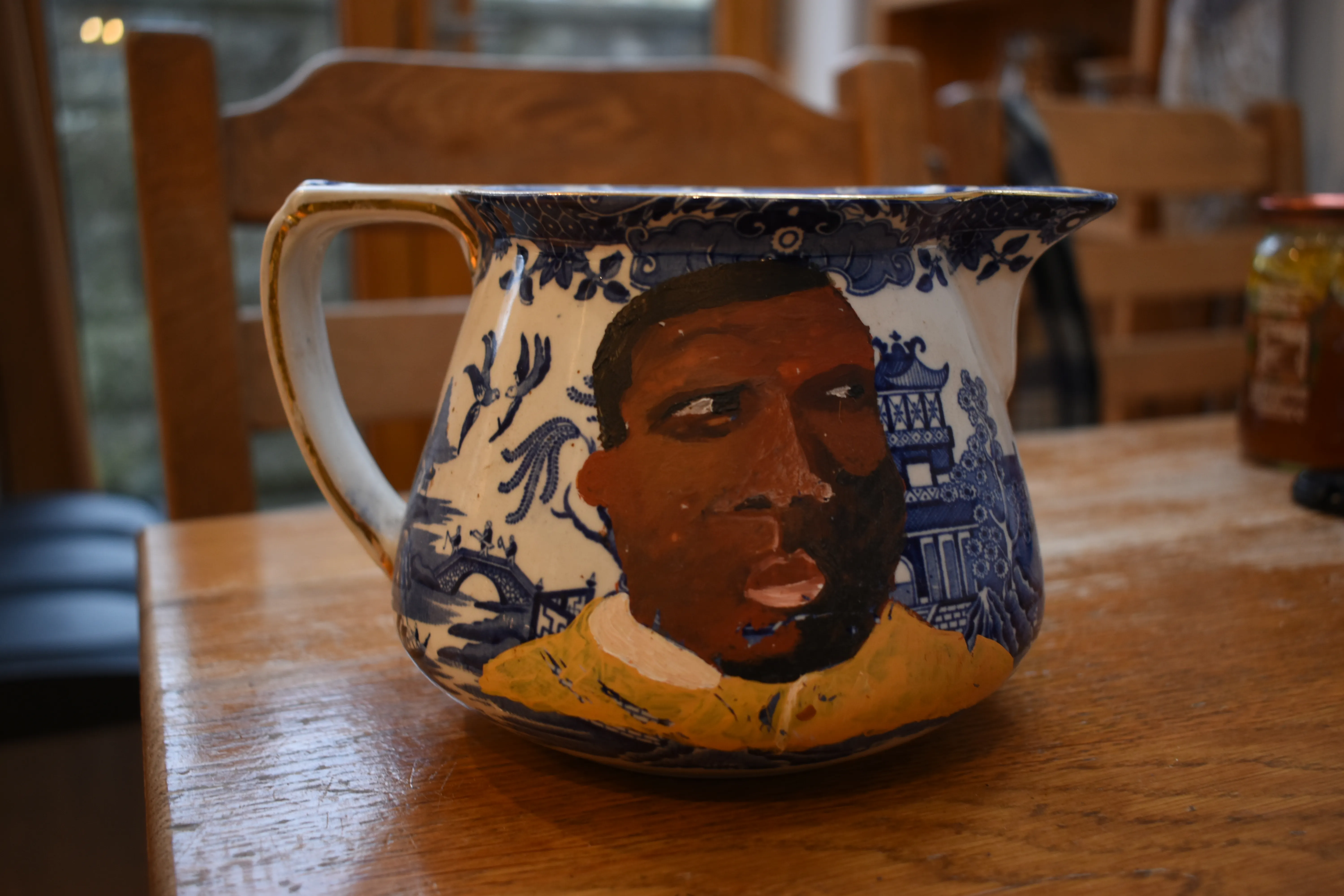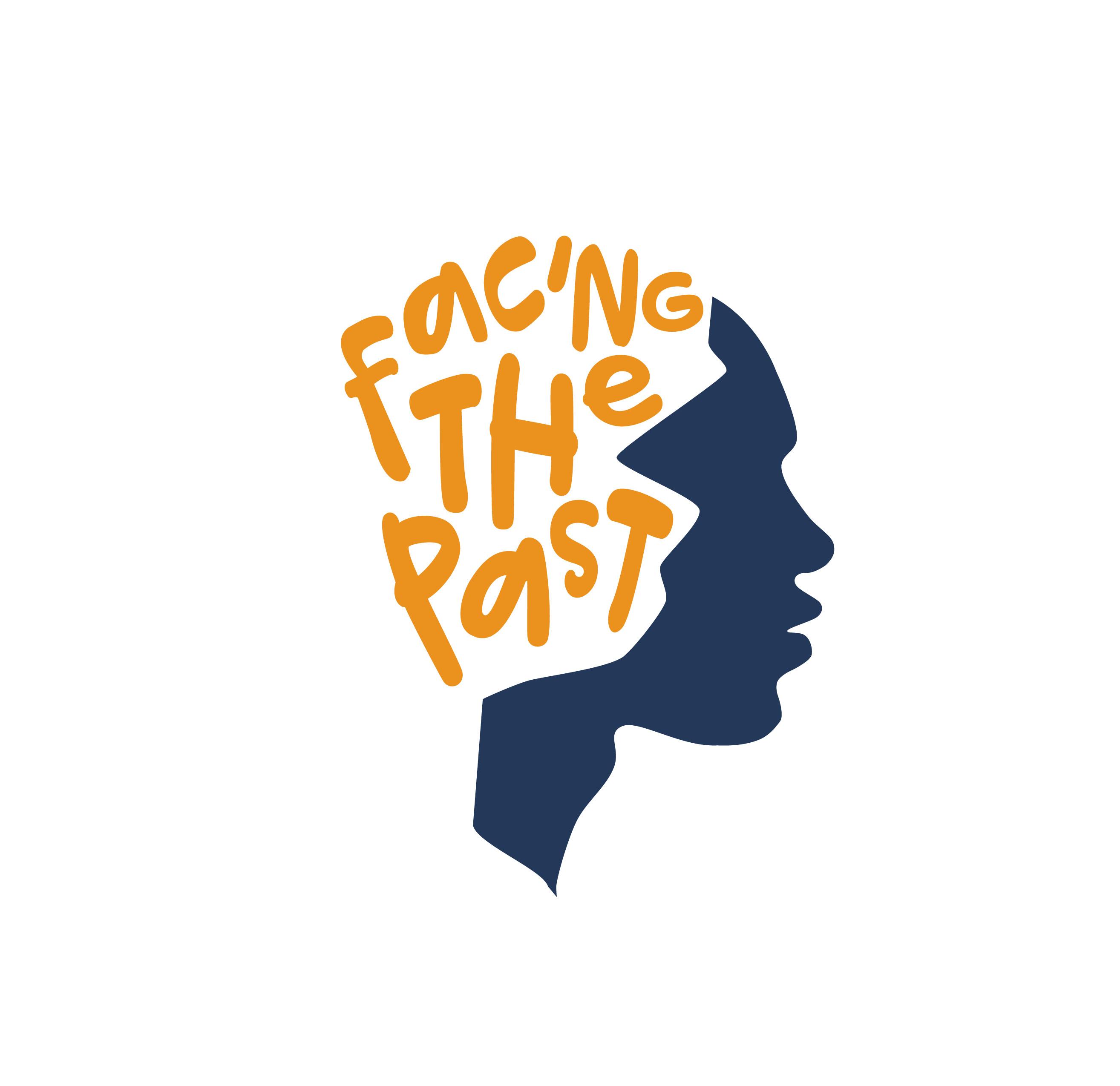

'Swallow Hard' by Lubaina Himid
A jug from the 'Swallow Hard' collection of works exhibited at Judge's Lodgings museum in 2007 as part of the Abolished? programme.
Shared with permission from Alan Rice.
Facing the Past was conceived following the vandalism of a memorial dedicated to a slavery merchant in Lancaster Priory Churchyard and the multifaceted community response which grew. Until this point, much of the public was not aware of Lancaster’s role as the fourth biggest slavery port in the UK.
We have a shared responsibility to discuss the history of our city so that we can understand just how pervasive the legacies of the trans-Atlantic slavery trade are and the impacts of this on the experience of black people living in the city today.
There is an impetus to re-examine the structures that uphold racism that is rooted in this history. Research by the Diversity Trust tells us that recorded racial hate crimes have increased by 19% from 2021 to 2022, up to 109,843 incidents.
By bringing this conversation into the public realm and seeing our historic surroundings in a new light, we aim to bring awareness of contemporary social injustice. We encourage new audiences to re-activate their imaginations for debate and positive action, echoing the collective action that resulted in the abolition of slavery.
Although slavery is illegal, it is still something that very much exists across the world today and like trans-Atlantic slavery, it allows those forcing people into unpaid labour to make vast amounts of wealth. It is not just illegal trades, such as drugs, that this occurs, but in legitamised industries like food production and waste management.
Systems of global inequality, and the complex networks through which production occurs, allows consumers removed from these situations to ignore the horrific conditions enslaved people endure. By recognising the consumer demands that allowed trans-Atlantic slavery to operate a widely as it did over several centuries, we can make conscious decisions about how the things that we buy today impact the lives of the people producing them.
For more information: https://www.unseenuk.org/

